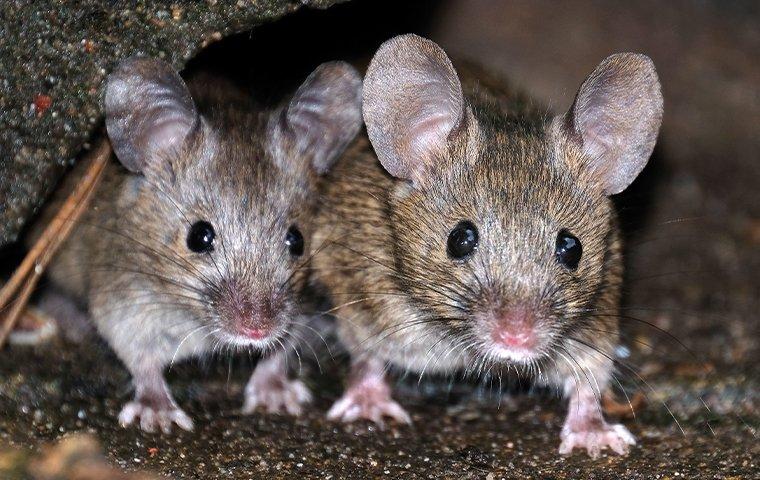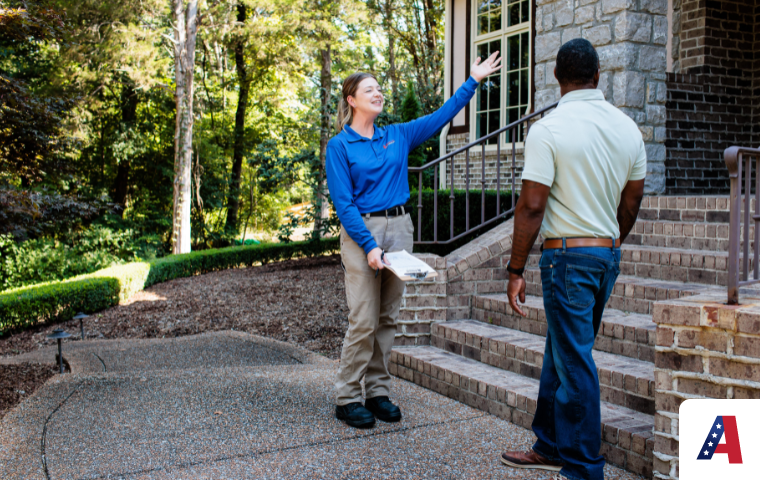Bump bump. Thump thump. Scrape scratch. Are these the noises you hear as you're going to sleep at night? If so, you may have a mouse in your wall. While mice typically live as close as possible to food sources, they sometimes establish nests in attic spaces; sleep during the day; and head down to kitchens and pantries at night. If this is the case in your home, it might be why you're hearing a mouse inside your walls. While this can be annoying, you might want to thank that little mouse. Mice are more likely to move about inside your home without making any noises that you are able to detect, or you could have mice inside your walls and not hear them. Sometimes, other evidence leads to the discovery of a mouse infestation, such as droppings, grease marks, footprints, or actually seeing a mouse running along a baseboard. Whether you hear a mouse, or see evidence of an infestation, it is likely that you have mice in your Nashville walls. They're attracted to wall voids. So what can, and should, you do about mice in your walls? Let's take a look.
Step 1: Take Action
It is important to address a mouse infestation when you detect one. Mice can reproduce quickly, especially if they have available food sources. A female mouse is able to get pregnant as many as 10 times a year. When she produces a litter, there can be as many as 14 pups. The average number of pups tends to be in the range of 6 to 8. When you consider the fact that many of her pups will be female mice, and that those female mice can be old enough to reproduce their own offspring in as little as four weeks, it is easy to see that a mouse population can get out of control quickly.

Step 2: Consider Food Sources
Do you know that a mouse eats 15 to 20 times a day? Yup. That's why they want to live as close to food sources as possible. You can use this knowledge to deter mice from living in your Nashville home. When you get control of food sources, mice start getting hungry. If you continue to make mice hungry, they could choose to go somewhere else. At the very least, you'll stunt their population growth.
-
Clean your kitchen and pantry as thoroughly as possible. Remove any crumbs, granules, and food particles.
-
Store certain foods in sealed containers. If a food comes in cardboard, paper, or plastic packaging, it is best to store it in a sealed container.
-
Make sure all your trash receptacles have covers.
-
Consider only eating in the dining room and pantry until your mouse infestation has been corrected. This limits the zone that you need to clean.
-
If you have a dog or cat, designate a meal time, and be sure to pick food up before nighttime, as mice are nocturnal.
Step 3: Seal Entry Points
Once you've put the pressure on, and made it difficult for a mouse to find a meal inside your home, the next step to deter mice is to seal entry points such as exterior walls and foundation so that any mice that left don't have a chance to easily change their minds.
-
Inspect your foundation. Seal any gaps between your sole plates and your foundation walls or slab. Seal around water pipes, wires, and other foundation penetrations.
-
Inspect your doors. Make sure your weatherstripping and door sweeps create a good seal. Make sure there are no gaps around your frames. Use a caulking gun to fill in any wood holes in your door frames. Repair damaged screens on sliding glass doors.
-
Inspect your vents, weep holes, louvers, and other potential entry points. If they aren't protected, install specially designed protectors, screen material, or hardware cloth to keep mice out.
Step 4: Yard Work
One of the reasons mouse problems begin is that mice find a suitable environment in the perimeter around a home. Check and correct these issues.
-
Have your gutters cleaned and repaired if you have ground saturation.
-
Trim bushes, shrubs, and other plants in your landscaping, particularly near the base of this vegetation.
-
Blow the leaves out of your landscaping and remove leaves that have gotten underneath exterior structures.
-
Move woodpiles, dead branches, and other wood sources away from your exterior.
When Trapping Is Needed
It is difficult to trap mice and, when done incorrectly, it can lead to many unfortunate consequences. If you have a mouse infestation that requires trapping, it is best to have a trained service professional handle this task. If you live in Nashville, get professional assistance from the Nashville pest control service team here at All-American Pest Control. We use industry-leading control methods, which include professional inspections, placement of traps and baits, and proactive follow-up visits to ensure success. Reach out to us for immediate assistance and to learn more about our residential and commercial pest control services in Nashville.
We're Ready To Help
Call Our Office or Complete the Form To Get Your Customized Quote
 1426 Reviews
1426 Reviews



